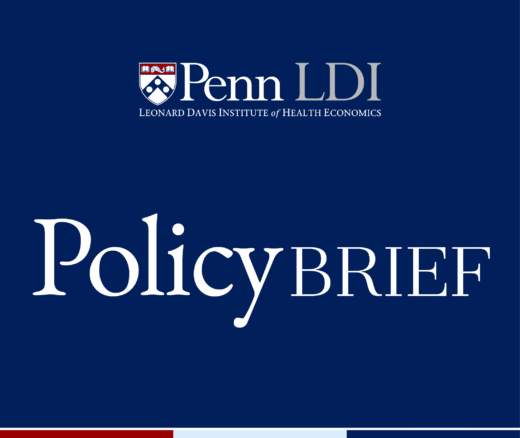
Analysis of the Rural Health Transformation Program
Memo: Response to Request for Analysis
News
The paper “Fight Like a Nerdy Girl: The Dear Pandemic Playbook for Combating Health Misinformation” was selected as the 2022 American Journal of Health Promotion’s Editor in Chief Award for its new insights into combating disinformation, understanding vaccine hesitancy, and providing a blueprint for how scientists can fight back against misinformation.

Alison Buttenheim, PhD, MBA, Senior Fellow and Director of Engagement at Penn’s Leonard Davis Institute of Health Economics, and Penn Nursing Professor was one of eight female faculty members from universities across the country that make up the Nerdy Girls team.
Each year, the American Journal of Health Promotion looks back at all of its previous year’s content to select the most important study papers based on a criterion of uniqueness, timely importance, well executed methodology, highest quality writing, and volume of downloads and citations, to select the Editor in Chief Award winner.
Published in March of 2020, the Nerdy Girls Pandemic Playbook piece detailed the work and broad-ranging social media initiative that presented a blueprint detailing how scientists, with evidence, humor, and media chutzpah, could effectively fight back against the waves of COVID-19 misinformation that now pose such a daunting public health challenge.

Memo: Response to Request for Analysis

Lessons from the Past, Imperatives for the Future

A New Study of a Sample of Facilities Found Half Without Any Behavioral Health Staff

Physicians Were Paid About 10% Less for Visits Involving Black and Hispanic Patients, With Pediatric Gaps Reaching 15%, According to a First-of-Its-Kind LDI Analysis

A New Review Finds Hospital Mergers Raise Prices Without Improving Care, and Urges Regulators to Stop Accepting Quality Claims to Justify Consolidations

Technology Helps Older Adults Stay at Home—But May Delay Necessary Transitions to Higher Levels of Care